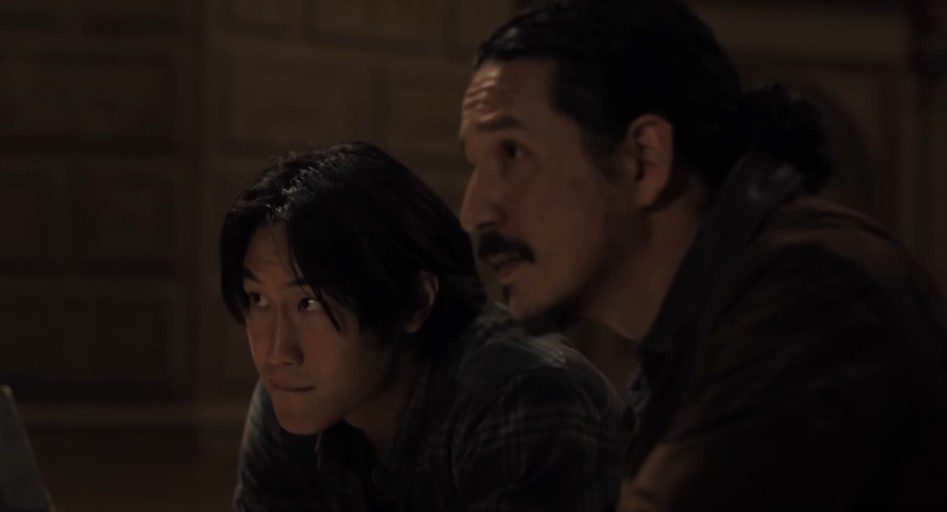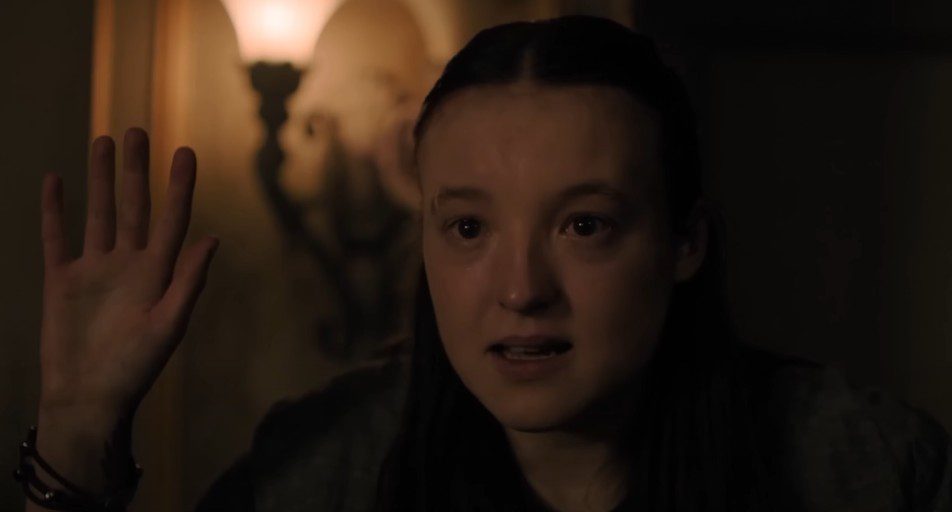After The Last of Us took a bit of a breather from the plot with a flashback episode showing the degradation of Joel and Ellie’s relationship, the finale was left with the tall task of getting season two to a natural endpoint. There was considerable ground to cover before credits rolled on this one, and even more to talk about now that the season is over, though the story is far from the same.
In the end, “Convergence” did its best, but fell victim to the many questionable decisions plaguing this season of The Last of Us throughout its entirety.

Many people familiar with The Last of Us Part II, myself included, kind of assumed the finale would run into the problems bringing this episode down a bit. Whether you know what happens or not, ending this season with the cliffhanger of Abby finding the theater and the start of her side of these three days in Seattle is a controversial, unsatisfying move that caused a ruckus back when the game released, and will be even worse now that TV audiences have to wait two years or so for a continuation.
This cliffhanger leaves the season feeling incomplete, since none of the plot points driving the story have been resolved. Joel remains unavenged. Ellie doesn’t cross paths with Abby until the final moments, and we don’t know what happened after Abby pulled the trigger. We don’t even see the culmination of the conflict between the WLF and the Seraphites. So much of the story is left unfinished and unsatisfying, which was a big cause for debate among fans of the game when discussing how to adapt The Last of Us Part II.
I can’t imagine what this will be like for people unfamiliar with the game, who will now have to wait two years, at least, and possibly four years if The Last of Us goes for four seasons.
Perhaps this episode wouldn’t have felt so unsatisfying if the rest of the season was better, but as anyone familiar with my previous thoughts on the season knows, well, it wasn’t. This was a season filled to the brim with pacing issues, and they plague “Convergence” as well.
These types of poor pacing decisions continued here in the finale, as the episode had to rush through the events of Ellie’s third day, but still for whatever reason decided to waste time on wasteful, nonsensical scenes.
The biggest offender here is easily Ellie washing up on the Seraphite island. It’s an absolutely terrible scene, one that wastes time on an event that doesn’t need to exist and makes zero sense overall. This was an idea cut from the game, and should have stayed that way, as it ultimately serves no needed purpose. It largely just repeats the idea of the Seraphites indoctrinating their young into the conflict with the WLF, something we have both already seen and also had the WLF openly state numerous times, even in this episode. The most generous read of the scene is that something Abby was doing on the island at the same time caused the alarm that saved Ellie’s life, but again, none of this was necessary.
Even if it was meant to teach Ellie about the brutality even of the kids in this conflict after she gets so angry about Jesse letting the WLF taking the one Seraphite to die, she shouldn’t need that lesson considering what she has seen already.
On top of that, the Seraphites walking away and leaving Ellie might be one of the most obviously poor plot armor moments you will ever see in a show. At the very least, they still would have killed her before running to the village’s defense.
These kinds of decisions exemplify the pacing missteps so baffling to me. Season two of The Last of Us has been a masterclass in both wasting time and moving too fast. They spend too much time in Jackson and too little in Seattle. They spend an entire episode on Joel and Ellie but also rush the confession and porch scene. Dina and Ellie move too slow in getting together, but too quick in committing. They would spend so much time on one thing that they were forced to sprint to catch up.
Without this random, unneeded Seraphite scene, maybe the other rushed scenes would have had more room to breathe. Maybe they wouldn’t have rushed through the moments and conversations that need to occur, and could give them more time to build and establish in previous episodes.
The Last of Us desperately needed a longer season, but blaming the pacing issues entirely on the number of episodes also overlooks the wasteful decisions that made seven episodes so inadequate for the story.
“Convergence” spends a lot of time trying to make the point of how far gone Ellie is. She tells Dina about how easy it was to torture Nora. She clashes openly with Jesse, and goes on a tirade when he justifiably shames her for abandoning Tommy in order to hunt Abby down. The deaths of Owen and Mel are made even more harrowing by Mel begging Ellie to give her an emergency c-section.
(If I’m being honest, that last part strikes me uncomfortably of Game of Thrones adding a pregnant Talisa to the Red Wedding, which just seems to be there to make the tragedy more edgy and dark than it already was.)
It all works fine, but I’m struck by how The Last of Us continues to take much of the intention out of Ellie’s worst acts from the game. The Owen and Mel scene gives you Mel asking for the c-section but takes away Ellie killing their dog, Alice. They also made Mel’s death an accident. Ellie mentions not killing Nora. Yet again, the show chose to take the edge off the story, while wanting you to react as if they did not.
Altogether, it adds up to make Ellie much less capable and brutal than she is in the game, which weakens the impact of everything she does. She simply isn’t descending to the depths Ellie should fall to.

And ultimately this is why season two became such a disappointment; Ellie fails entirely to drive the story, or come across as someone who could or should be on the mission she’s on.
The Last of Us has consistently shown all season that Ellie is haplessly out of her depth. She would be dead numerous times over if not for someone else. She tends to follow other people’s lead rather than take charge. Even in this episode, she entirely follows Jesse’s lead until she happens to spot the aquarium, rather than set out with the belief that Tommy is going after Abby, Abby is at the aquarium, and they should go that way despite finding out Tommy is somewhere else.
She almost drowns, blunders into the Seraphites, almost blunders into trying to stop the WLF from killing a Seraphite, and continues to stumble headfirst into plot armor luck forced by the narrative, rather than because she is actually a capable person.
None of these changes, taken by themselves, are egregious, but altogether they add up to make Ellie so much less interesting, intelligent, and capable than her game counterpart. She comes across more as a hapless, annoying kid who has no idea what she is doing.
Yes, that is part of the point being made here, but The Last of Us also wants you to believe that Ellie is also capable of getting revenge on Abby, sneaking into a hospital to get Nora, or, to get into spoilers: holding her own in a fight with Abby before eventually navigating the snake pit of Santa Barbara. Meanwhile, everything we see of her in season two is that Ellie would be dead in basically every scenario if not for others.
They also want you to believe she is so single-mindedly focused on her grief and anger that she would make the decisions she does in this episode, when the rest of the season has failed to communicate that. We’ve seen an Ellie largely lacking this edge or sorrow, so when she’s suddenly ranting at Jesse, it doesn’t hit like it should. It’s a problem with much of the story now. For whatever reason, The Last of Us decided to soften much of the dark edge to this story, making it that much less emotionally potent as a result.
I wish I knew why they decided to sideline Ellie’s agency in this story. Is it just poor writing decisions? Is it lack of faith in Bella Ramsey to carry the season the way Ellie carries the game? Both seem valid, as the writing intentionally downplayed Ellie, and Bella has struggled to be as convincing with Part II material as she is with the more familiar kid version of Ellie. Both likely play a role here, but whatever the ratio, Ellie has failed to be the protagonist the story needed.
The most interesting parts of this episode, and this season, were all things other than Ellie. Isaac’s scene talking to Park about Abby was a fascinating tease for Abby’s story, as was the glimpse of the attack on the Seraphite island. Dina consistently outshone Ellie in their shared scenes. Joel owned the flashback episode. Jesse took control of this episode while Ellie was largely a sidekick. Season two has largely established Ellie as exactly that; a sidekick, someone who can’t control the narrative, can’t control an episode, and can’t carry a season the way the premise requires.
It’s a shame.
There will be a lot of debate about the cliffhanger, but ultimately it is a controversial cap to a season that has consistently disappointed me at every turn, rather than a cruel tease diminishing an otherwise excellent season. The Last of Us has been plagued by poor pacing and dumbed down dialogue (do we really need Jesse to mention not dying so many times?) that has dragged down the exceptional production and acting.
When it comes to the debate about The Last of Us Part II, I have always been one of its defenders. While not perfect and not quite as memorable as the first game, I found it a compelling story that tried something unique and risky, and largely succeeded in my eyes. I was over the moon at the prospect of a TV version of the story, one that could clean up the game’s flaws and present one of my favorite gaming stories to a bigger audience that would love it.
Maybe people do love it, but I find myself thoroughly disappointed. Rather than fix the flaws, the show has only made them worse. It has contributed to the idea that Part II’s story doesn’t work rather than silencing this critique. The game has a delicate balance that can be thrown off by minor changes, and season two didn’t just throw it off balance, it shoved the story roughly off the beam. Nor does it help that the show insists on treating the audience like they are stupid.
I find myself not even wanting to watch season three at this point. I’m sure Kaitlyn Dever will own it. She’s a force of nature who will drag this show kicking and screaming to respectability. Hopefully Craig Mazin and Neil Druckmann will take in the criticism and respond well.
However, I struggle to believe I will care enough to give this version of The Last of Us any more of my attention.
Images Courtesy of HBO
Have strong thoughts about this piece you need to share? Or maybe there’s something else on your mind you’re wanting to talk about with fellow Fandomentals? Head on over to our Community server to join in the conversation!

